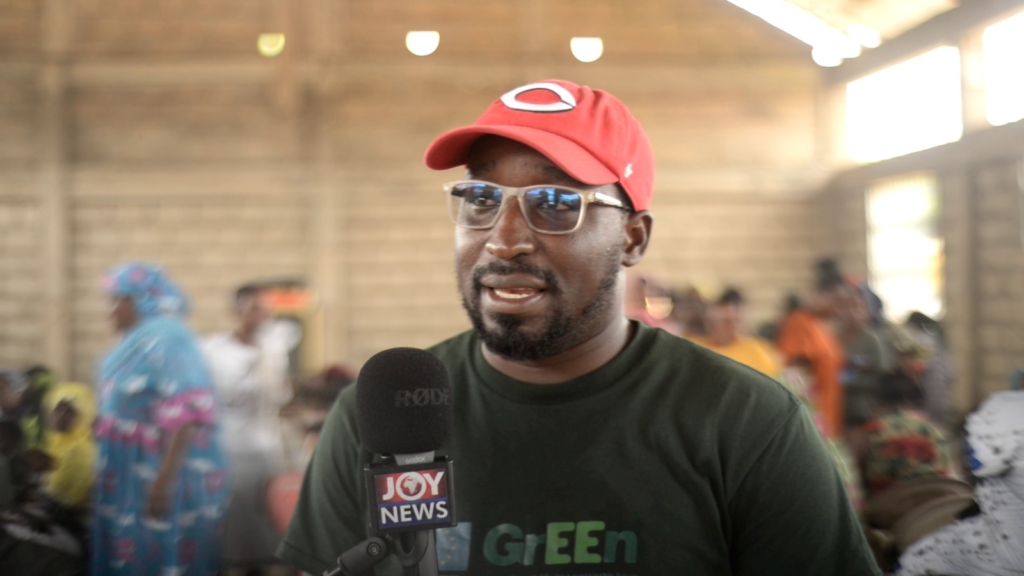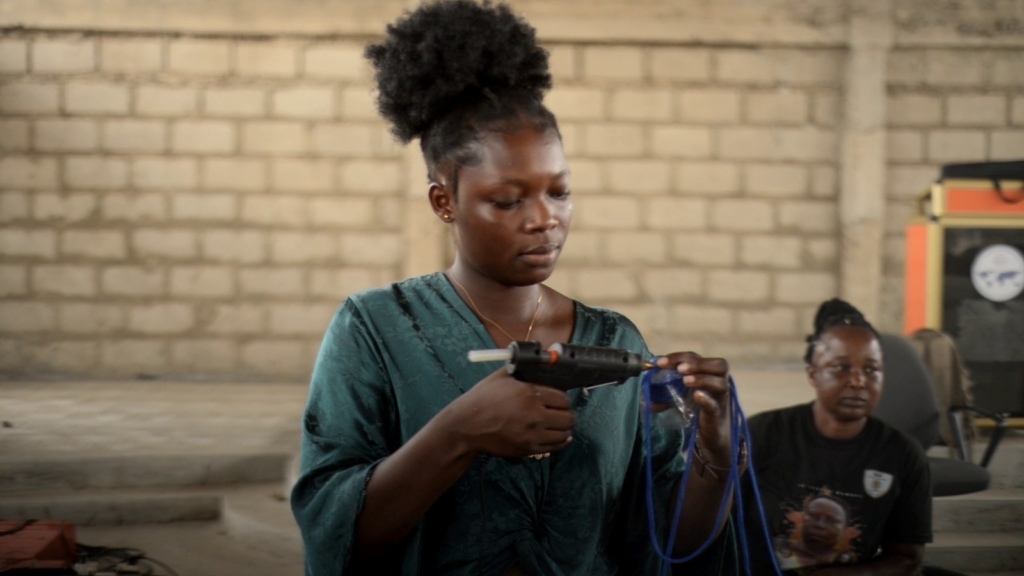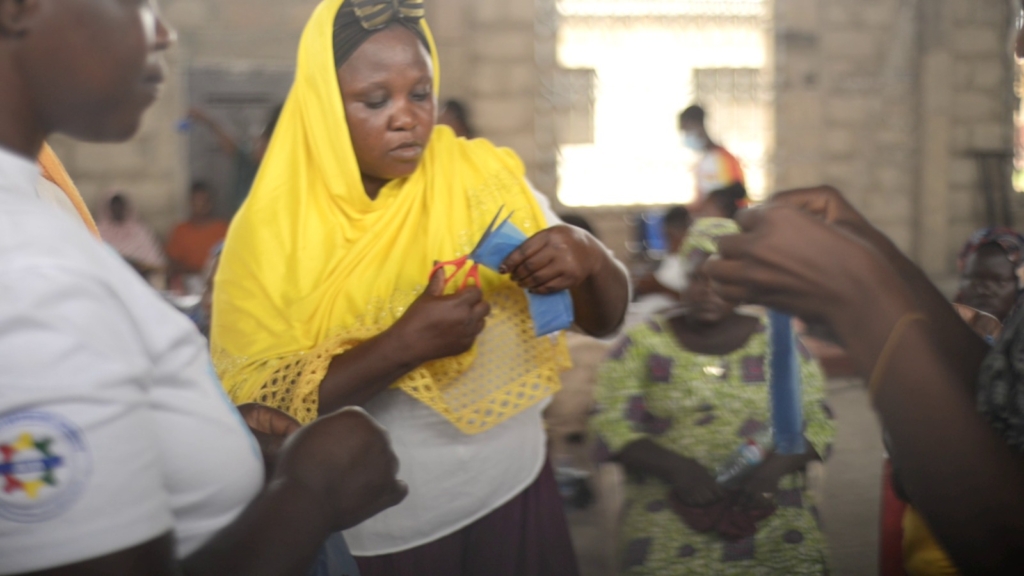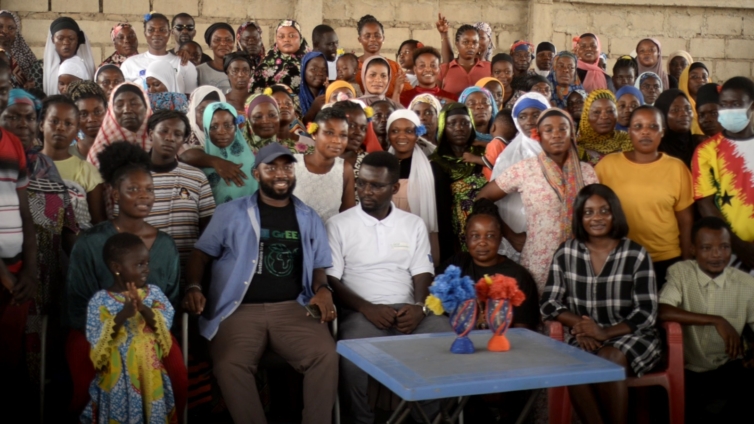SOS Children’s Village in Ghana is admonishing authorities and concerned bodies to heighten public education on the adverse complications of plastic use.
This adds to efforts for homes and individuals to migrate from the use of plastic products, which are common pollution to the environment, as well as to develop a sound treatment for waste collection.
SOS Green Ghana is highlighting plastic waste as harmful to health, hence, the need to treated the menace with the utmost urgency.
The prevalence of plastic waste has become an emergency problem in Ghana, making its harmful nature more pertinent to human life.
The UN's development goals stress the need to address climate change and its effects beyond technical solutions but instead, nurture leaders within communities and systems to foster collaboration, relationships, stakeholder engagement, conflict resolution, and innovative problem-solving for climate challenges.

SOS Children's Villages in Ghana collaboration with the recycle-up Hub organized an event in Aboasu-Offinso in the Ashanti region to commemorate this year's occasion under the theme "Planet vs Plastic".
The sensitisation program aims to sensitise participants on the environmental challenges and hazards posed by the increased use and bad disposal of plastics.
Participants were trained to develop their up-cycled products for exhibitions to expose them to economic opportunities in plastic upcycling.
Trainer and Mentor for the SOS GrEEn Project, Moses Kofi Annor, says, proper and heightened education on plastic use in homes will help mitigate the effect of plastic on the environment.

“The time has come to move away from purchasing plastic products as well as to develop sound treatment from waste collection to recycling into new products and create awareness. Plastic waste has become an emergency problem around the world especially in Ghana. It is harmful to our health, and animal life in the ocean and on the land, and it affects sanitation systems.
“There is the need to train the public on how to reduce plastics in their homes and recycle them. The effects of plastic waste are dire. And Ghana cannot afford it. This adds to the reason we have organised this community engagement,” he said.

The participants who took part in the training on how to reduce plastics in communities shared their experiences.
“I am aware that plastic is harmful. But I didn’t know that some of these plastics could be reused for things like this. I can just pick them, and use them for something meaningful. I am glad we had this training,” a participant shared.
The event targets 100 Cash for Work beneficiaries from Saboa and Aboasu in the Offinso Municipal.
Latest Stories
-
Being multi-skilled can be a hazard – Otabil tells young leaders
11 minutes -
Tyler Perry did not wake up one morning to that level of support; he served his audience – Leila Djansi
16 minutes -
Chief urges crackdown on underage and reckless motorbike riding in Asutifi North District
19 minutes -
CARE Ghana, Cargill hand over agro-processing equipment to women producer groups in Ashanti, Central regions
25 minutes -
Woman remanded for allegedly stealing GH¢800k mistakenly transferred to her account
46 minutes -
Not everyone is meant to be a founder – Otabil urges youth to embrace purpose in service
1 hour -
Doris Boaduwaa bags hattrick in comeback win over Malawi
1 hour -
Final hours of Day 3 to secure unbeatable deals at Ecobank-JoyNews Habitat Fair
2 hours -
We are committed to a ‘Green Ghana’ – Prudential Bank MD
2 hours -
Nungua Town XI defeats Ghana Internationals in Kplejoo Pre-Festival Match
3 hours -
Osu Castle hosts diplomatic showcase of wellness as Ghana, India unites for International Day of Yoga
4 hours -
U.S. and Israeli Strikes on Iran: A Racist, Colonialist Assault on Sovereignty
4 hours -
Prof Gyampo clarifies interaction with Special Prosecutor over raid on SMS offices
4 hours -
Prof Gyampo called and texted OSP during raid on SML – OSP claims
5 hours -
Nigeria sprinter Favour Ofili switches allegiance to Turkey
5 hours

